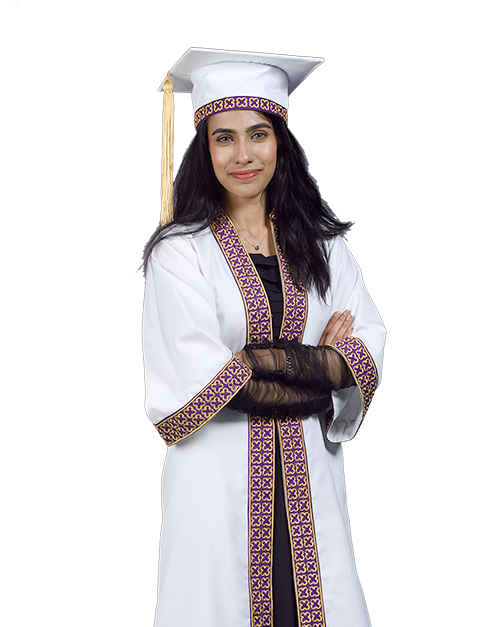
ALINA NAGI
Aspiration Statement
I want to pursue a job after my graduate program within the domain of design, marketing and research. Given my experience in the field I want to gain industry insights.
Core Skills
- Digital Media Marketing
- Digital Illustration
- Program Planning
- Picture Editing
- Qualitative Research Skills
Experience
Leadership / Meta-curricular
- Wellness Peer, 2019-2020
- Founder of Sanvarna Accessories (Registered E-commerce business)
- Took marketing courses on Coursera
- Freelancer SEO writer for 2 years
Internship / Volunteer Work
- Indus Motor Company Ltd - Management Trainee
- Friedrich Naumann Foundation South Asia - Lead Designer
- Sanvarna Accessories, Founder (August 2019 - March 2022)
- The Cedar School, Academic Development Intern (July 2021 - August 2021)
- National Foundation for Peace and Development, Program Planning Intern (January 2020 - January 2021)
- The Citizens Foundation, Baghban Program (January 2019- June 2019)
Publications / Creative Projects
- Styling for Zara Shah Jehan for Spring Collection 2022
- Styling for ethnic outfitters for Summer Collection 2021
- Designing album covers for Daniyal Studio Photography
Final Year Project
Project Title
Education and Development Opportunities for Youth Growing Up in Financially Disadvantaged Households
Description
The middle-class spectrum in Pakistan has an extensive number of households living with an average income of Rs. 50,000 to Rs. 150,000. With inflation rates rising, and purchasing power declining, a lot of these households have to make difficult choices regarding the quality of education and development opportunities their children get. Children growing up in such households tend to face limited academic opportunities or have difficulty fitting into their existing academic institutions. This study interviews 6 Pakistani individuals with similar living conditions, to explore the effect of these factors on the education and development opportunities of the Pakistani youth. It further uses the livelihood framework as an evaluating approach to assessing a holistic impact on the coping strategies of such individuals and their long-term impact.